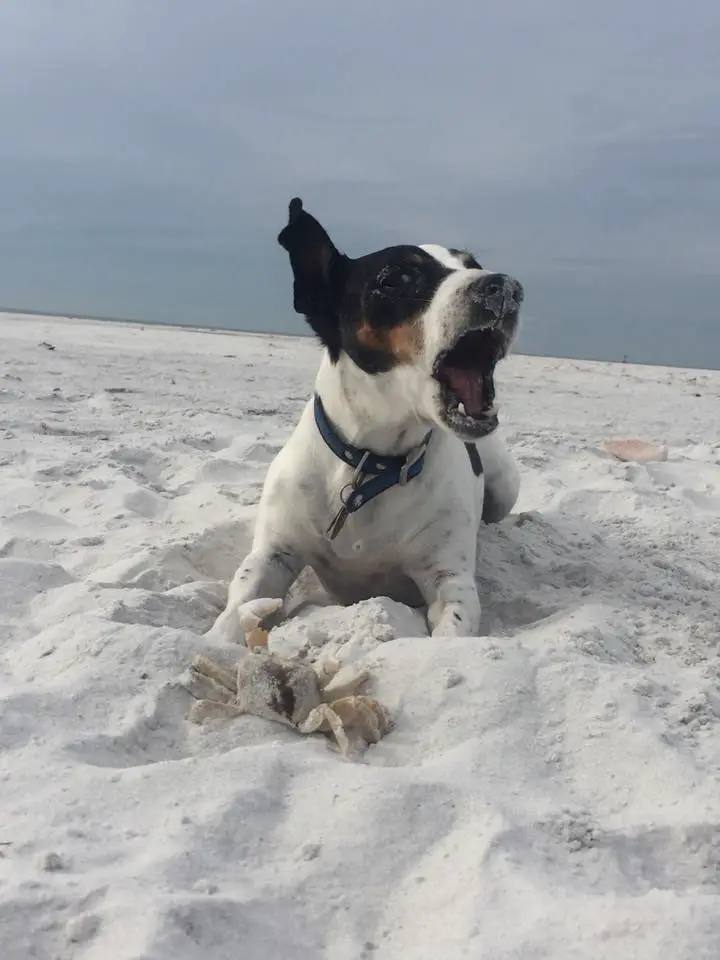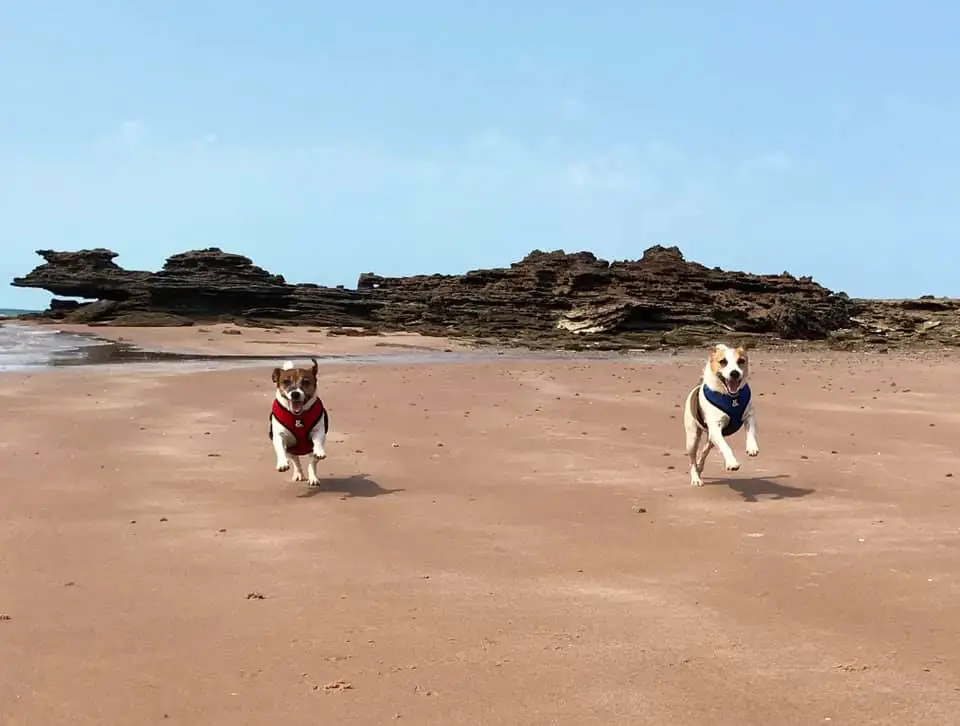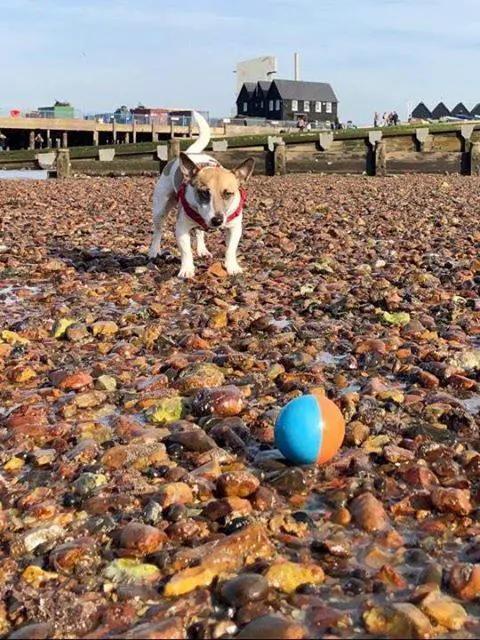Table of Contents
*This post may contain affiliate links. As an Amazon Associate we earn from qualifying purchases.
The beach is some of the best summer fun a dog can have. And if you’re lucky enough to live in a temperate climate, it’s fun you can have all year round.
But, as the hobbits say, it can be a dangerous business walking out your front door. And the beach has some of its own special hazards. So it pays to be prepared.
Know The Laws

The most important thing, of course, is to make sure that your dog is welcome. Some beaches allow dogs, but others don’t. Some require dogs to be on a leash. And all will be grateful if you’re prepared to pick up after your pooch.
Before you go, make sure the beach you’re planning to attend is dog-friendly. This will save you both a lot of trouble and disappointment in the end.
Get Your Sunscreen Ready

Just like humans, dogs can get
To protect your dog, use a child-safe sunscreen of SPF 30 or greater. Put it on your dog’s ears and nose, as well as any other areas with thin hair or no hair.
Keep an eye open for signs of sunburn. Sunburn can look different in dogs than it does in humans, and often the damage is worse than it appears. If you see any of the signs of sunburn on your dog, a trip to the vet is in order, sooner rather than later. Signs include:
- skin redness
- exposed layers of skin
- white, leathery patches
White, leathery patches are a sign of severe sunburn, so if you see this, it’s very important to get to the vet as soon as you can.
Food and Water

Make sure you have plenty of fresh water on hand when you go to the beach. Running and playing in the sand and surf is thirsty work, but ocean water is as bad for dogs as it is for us. Your dog might be tempted to drink from the ocean, but this can lead to dehydration, kidney problems, and worse. Be safe and bring your own fresh water and a portable drinking bowl.
Some dogs also like to snack on
Got Lifejacket?

Dogs can swim, and many love to. At the same time, unseen currents and riptides are real hazards. If your dog likes to do more than dip their toes, they may find themselves out a bit further than planned and exhausted. A doggy life jacket can keep them afloat until you can help.
A pet lifejacket can also keep your dog’s head above water, cutting down on the chance of “dry drowning.” What’s that? Well, if a dog swallows or aspirates (breathes in) water accidentally — for example, if a wave washes over them or pulls them under — the water can sit in their lungs and cause problems, including secondary drowning. These problems can come hours, or even days after your beach visit.
If you suspect your dog may have inhaled water, keep your eyes open for the following signs:
- coughing or hacking
- extreme lethargy
- wheezing or difficulty breathing
If you suspect dry drowning…well, you know what you should do. Get to the vet immediately!
Also, be aware that eating sand can have a similar effect, if sand gets into your dog’s lungs.
What about Doggy Sandals?

Generally speaking, most dogs’ feet are well suited for a good romp on the beach. However, in some
Puppy Safety
Puppies are especially vulnerable to waves, tides and currents. Keep a close watch over your puppy when he or she is near the water!
Safety is the Key to Fun

The beach can be great fun — and keeping it safe means that it’s fun you’ll be able to come back to time and time again.

